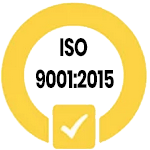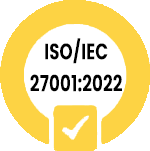Things
The Florence Chamber of Commerce, as part of the activities envisaged by the Transition 4.0 Plan, intends to promote the diffusion of digital culture and practice in micro, small and medium-sized enterprises of all economic sectors through economic support for digitalisation initiatives, also aimed at green oriented approaches aimed at supporting the ecological transition of the production fabric. Specifically, the intervention is aimed at:- developing the capacity for collaboration between MSMEs and highly qualified subjects in the field of using I4.0 technologies, through the implementation of projects aimed at the introduction of new 4.0 business models and green oriented; - promote the use by MSMEs of services or solutions focused on new digital skills and technologies, in implementation of the strategy defined in the Transition Plan 4.0.
Who is it aimed at?
To micro, small and medium-sized enterprises with registered office in the territorial district of the Florence Chamber of Commerce, which are registered in the Company Register of Florence and active. Companies must also be up to date with the payment of the annual chamber of commerce fee. Companies to which contributions have already been paid for the 2022 and 2023 years of the measure cannot apply.
What does it predict
Non-repayable contribution equal to 50% of the eligible expenses with a ceiling for each applicant company of €6,000.00 in addition to the possible bonus of €250.00 for companies in possession of the legality rating. Expenses incurred starting from 1 January for: 1) consultancy and/or training services relating to one or more technologies among those envisaged by article 5, paragraph 1 of the regulations and reported below are eligible (to the minimum extent of 30 % of total costs)2) purchase of goods and services instrumental to the acquisition of the enabling technologies envisaged by article 5, paragraph 1 of the specifications and reported below (to a maximum extent of 70% of total costs)The technological areas of innovation digital technology must concern at least one technology from List 1 with the possible addition of one or more technologies from List 2. The investment relating to the use of digital technologies included in the subsequent List 2 cannot in any case exceed 50% of the total cost of the project, i.e. at least 50% of the total cost of the eligible expenditure must be directly attributable to the technologies envisaged in List 1LIST 1: use of the following technologies, including the planning or design of the related interventions and, specifically: a) advanced robotics and collaborative; b) human-machine interface; c) additive manufacturing and 3D printing; d) rapid prototyping; e) internet of things and machines; f) cloud, High Performance Computing – HPC, fog and quantum computing; g) cyber security solutions and business continuity (e.g. CEI – cyber exposure index, vulnerability assessment, penetration testing etc);h) big data and analytics;i) artificial intelligence;j) blockchain;k) technological solutions for immersive, interactive and participatory navigation (reality augmented, virtual reality and 3D reconstructions);l) simulation and cyberphysical systems;m) vertical and horizontal integration; n) digital technological supply chain solutions for the optimization of the supply chain; o) technological solutions for the management and coordination of business processes with high activity integration characteristics (e.g. ERP, MES, PLM, SCM, CRM, including tracking technologies, e.g. RFID, barcode, etc); LIST 2: use of other digital technologies (only if preparatory, complementary and directly connected to those provided for in List 1 above): a) mobile payment systems and/or via the Internet; b) fintech systems; c) EDI systems, electronic data interchange; d) geolocation; e) technologies for the in-store customer experience; f) system integration applied to process automation; g) Next Production Revolution (NPR) technologies );h) digital marketing programs;i) technological solutions for the ecological transition;j) Ultra-Broadband connectivity;k) e-commerce systems;l) digital technological solutions for the automation of the production and sales system.





